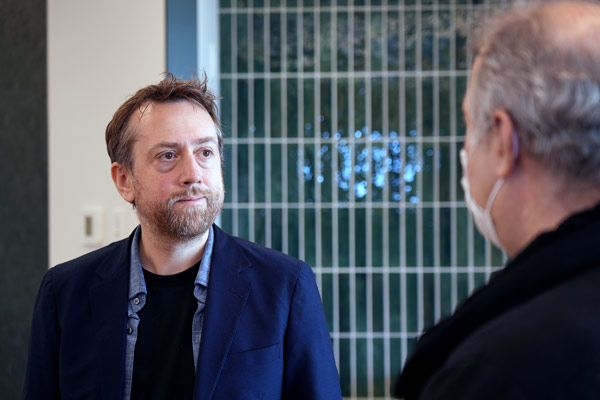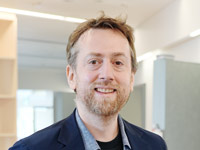Mar. 27, 2023
Modeling quantum environments
Neill Lambert, Senior Research Scientist
How and when did you join RIKEN?
I joined RIKEN in 2008 after spending several years at the University of Tokyo as a Japan Society for the Promotion of Science fellow. Initially, I came to give a seminar at RIKEN, and then applied for a postdoc position after enjoying the interactions I had with Dr. Franco Nori’s group (the Theoretical Quantum Physics Laboratory within the RIKEN Cluster for Pioneering Research).
Please describe your role.
I study open quantum systems, or how a large environment affects the behavior of small quantum systems, particularly in situations where parts of the environment itself must be modeled quantum mechanically. This research could be important to understanding how to control noise within quantum computers, or how thermodynamics behaves in quantum regimes. Day to day, I mainly work on developing new methodologies and conduct numerical simulations. I also assist with developing and administering a popular open-source software package for simulating the dynamics of open quantum systems created by our group – QuTiP (the Quantum Toolbox in Python).
What tech do you use?
Recently, because of several demanding projects, I have been using the computing resources at RIKEN, in particular the Hokusai BigWaterFall supercomputer.

How did you become interested in your current research?
The question of whether quantum effects can be observed with large objects is fascinating. Some of my recent work helps to unravel this issue, including research on how large collections of small quantum systems might start to appear to behave more like classical physical systems, which helps to make practical simulation methods and tools more efficient.
What has been the most interesting recent discovery in your field?
The development of small-scale quantum computers by companies such as IBM and Google has truly changed the field I work in. As a theorist, it's exciting that I can access real devices, through a cloud computing service, and conduct my own experiments.
How did you become interested in your current research field?
As an undergraduate, I undertook an exciting quantum physics course taught by Professor Tobias Brandes at UMIST (now The University of Manchester) in the United Kingdom. He would eventually become my PhD supervisor.
What has been your most memorable experience at RIKEN?
I have very much enjoyed the opportunity to supervise and train international students. One student recently contacted me and told me he had found a tenured university position in his home country, which made me very happy.
Rate this article

